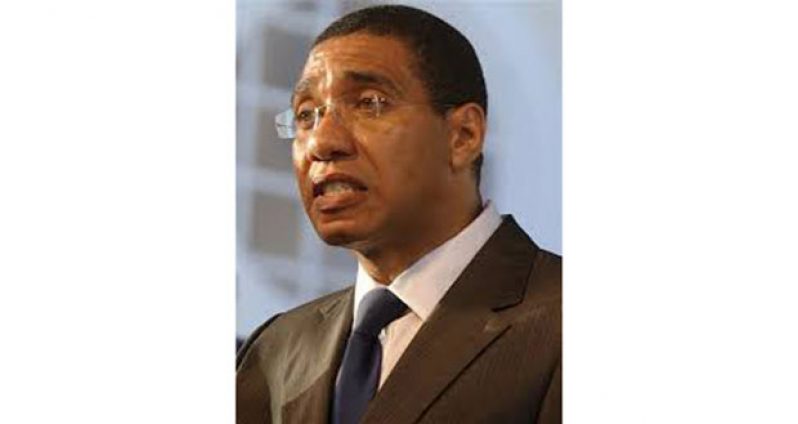By Derwayne Wills
US-based banks are cutting ties with regional financial institutions, leaving Caribbean leaders no other option than to appeal for leniency from the US Government, whose financial laws could leave the Caribbean cut off from the rest of the financing world. “The matter is one that could lock out the Caribbean from the financial system if it is not addressed,” said Jamaica’s Prime Minister Andrew Holness, who spoke with the press corps Thursday evening following a round of meetings with the Region’s leaders.
Much of trade within and outside the Region is done using the US dollar. As a means of cutting costs, Caribbean financial institutions have created partnerships with US-based banks using “correspondent accounts” rather than setting up branches in that country.
Those partnerships allow the US dollar to be traded between regional financial institutions and the rest of the world. A cutting of those connections could affect the flow of US dollars in the Region.
Following the terrorist attacks in the US in September 2001, the US Congress implemented an aggressive regime of anti-terrorism and anti-money laundering measures which affect the world’s financial system.
Caribbean and Latin American Governments are still shuffling to follow through with compliance measures imposed by Congress since the US could sanction banks based in that country which conduct business with the Caribbean and Latin America.
Most of the capital flow within the Caribbean and Latin America uses the US dollar as the common denominator.
Some countries in the 15-member Caribbean Community (CARICOM) have progressed further than others, leaving Prime Minister Holness calling for compliant countries to be “rewarded,” rather than face the risk of US-based banks pulling out from those countries.
So far, the Bank of America, a major US bank, has withdrawn support from Guyana’s commercial banks and similar measures are happening across the Region.
The Caribbean is looking to muster support from the international community and has so far requested assistance from Chilean President Michelle Bachelet as it builds its case for the US petition.
Bachelet departed Guyana a few days ago after attending the 37th summit of regional leaders held in Georgetown.
The Chilean President told the press corps before her departure on Wednesday that she awaits a report from CARICOM Governments on correspondent banking to determine how best her country could offer assistance.
Although CARICOM is preparing to lobby the US on the measures imposed by that country, there is some skepticism on the lobby’s success, especially since regional Governments were never consulted on measures being implemented by the world power in the last 15 years.
Prime Minister Holness, however, maintains optimism in the lobby, calling it “proactive and instrumental.”
“I think that reason will prevail and I think that our voices need to be a little louder so that the people who matter and who can change the decisions hear us.”
Since much of US investment is tied to the Caribbean, Holness believes that any threat to the Region’s banking system is also a threat to US investments within the Caribbean.
CARICOM to lobby against US-imposed financial sanctions — as US banks pull support from Region
SHARE THIS ARTICLE :
Facebook
Twitter
WhatsApp



.jpg)








